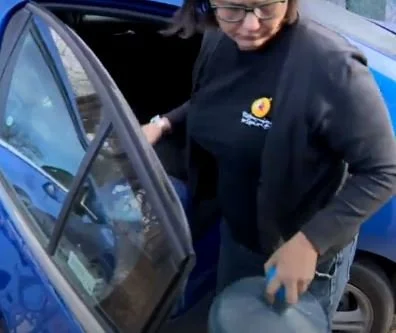Taralee Beardy never thought she would see her community get a safer source of water, but a national $8 billion drinking water class-action settlement affecting First Nations is set to change that. Beardy, the chief of Tataskweyak Cree Nation in northern Manitoba, says the construction of a new 40-kilometre pipeline and water treatment plant for her community is set to begin next spring, meaning Tataskweyak's six-year boil water advisory will be coming to an end.
‘We have to fix it faster’: 28 First Nations communities still under boil water advisories
Wednesday marks World Water Day, a day raising awareness of the more than 2 billion people around the world living without access to safe water, including many First Nations communities in Canada. The federal government says 138 long-term drinking water advisories have been lifted since November 2015, although some short-term boil water advisories have also slipped into the long-term category during that timeframe.
Approval of $8B settlement in First Nations' drinking water class action a 'historic moment': Manitoba chief
Thousands of people who have been affected by years-long drinking water advisories could see compensation, after courts approved an $8-billion class-action settlement in what one chief called a "historic moment" for First Nations in Canada. Canada's Federal Court and Manitoba's Court of Queen's Bench issued a joint decision Wednesday approving the settlement in two national class-action lawsuits launched against the federal government by First Nations living under drinking water advisories.
Despite pledge to end drinking water advisories, these 2 Manitoba First Nations still live under them
It was a time of celebration and relief in Shoal Lake 40 First Nation on Wednesday morning, as the community that borders southeastern Manitoba and northwestern Ontario marked the opening of a new water treatment facility and the end of nearly 24 years without clean running water. But more than 30 other First Nations are still fighting for access to clean drinking water that most Canadians take for granted, including two in northern Manitoba that have been under long-term drinking water advisories for years.
Cyclist riding across Canada to raise awareness of youth mental health crisis in Manitoba community
Indigenous TikTok creator spreads awareness for Canada’s First Nation water crisis
After living on the Tyendinaga Mohawk reserve in southeastern Ontario for nine months, he wasn’t looking to use TikTok to copy the latest dance routines. He wanted to highlight some First Nations reserves where clean drinking water remains impossible to find. So last January, from his account called @slapppps, Mcguire showed black water spewing from the pipes of his home. The video went viral, racking up 2.5 million views.
Tataskweyak suing federal government with class-action lawsuit over failure to provide clean water
Tataskweyak Cree Nation (TCN) in Northern Manitoba, which has been under a boil-water advisory since 2017, is one of the plaintiffs in a class-action lawsuit against the federal government that seeks to have access to drinkable water recognized as a right and spur the federal government to do more for it and other First Nations under long-term water advisories.
'We matter like all other Canadians': Tataskweyak Cree Nation calls on Ottawa to restore clean drinking water
Tataskweyak Cree Nation (TCN) is one of more than 55 First Nation communities in Canada under a long-term boil water advisory and has been for the last four years. On Thursday, the First Nation’s Chief and NDP MP Niki Ashton called on Ottawa to restore clean drinking water. TCN has said the Canadian government has failed to deliver on the promise of clean drinking water for their community. “We can no longer ignore it anymore. We have to fight for our people," said TCN Chief Doreen Spence. "We matter like all other Canadians." Spence said they are left with no choice but to bring the issue – a basic human right – to the United Nations.
First Nations communities pursue clean drinking water through the courts
This time of year, with the temperature plunging below -20 C, a snowmobile and an ice chisel are required tools for anyone in Tataskweyak Cree Nation in need of fresh water. There’s the bottled stuff, trucked into town courtesy of the federal government, but the weekly shipment of 1,500 cases is only sufficient to meet basic consumption needs. For cleaning, cooking and basic hygiene water, many residents need a supplementary source. And rather than use their tainted tap water, they follow a snowmobile trail several kilometres to Assean Lake, pails in hand.
Liberal government will miss drinking water target by years, CBC News survey shows
The Liberal government will miss a target it set during the 2015 federal election campaign to lift all long-term drinking water advisories in First Nations by March 2021 — in some cases by several years — according to a survey of communities by CBC News. More than a dozen First Nations said projects to end long-term drinking water advisories won't be completed by the promised deadline.
'Inertia and incompetence': Manitoba First Nation launches proposed class action over water advisories
A legal challenge filed in Manitoba's Court of Queen's Bench could cost the federal government billions, if it is proven the government has violated the Charter rights of a large class of First Nations people for decades by failing to provide them with safe drinking water. A proposed class-action lawsuit was filed on Nov. 20 by Tataskweyak Cree Nation Chief Doreen Spence on her own behalf and on behalf of her northern Manitoba First Nation. The suit alleges the First Nation has spent decades without access to clean drinking water and seeks damages.












